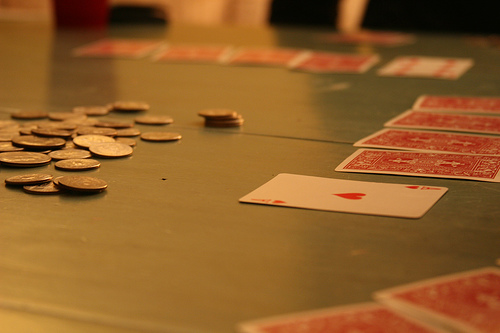Do you ever feel a tad guilty when you’re playing a game on your phone? There’s probably a niggling feeling in the back of your mind that you could be
Do you ever feel a tad guilty when you’re playing a game on your phone? There’s probably a niggling feeling in the back of your mind that you could be doing something more constructive with your time, but at the same time you’re having fun, so why would you want to stop?
The next time you feel bad about taking time out to play, don’t worry about it, because there’s a surprising amount of evidence that points to gaming having a positive effect on the brain.
There are some games which clearly take a little more thinking about during play, and they can range from table-top offerings to video games and beyond. One sector which provides a good example of this is casino games. If you take a look at the range of games available to play at the no deposit casino mFortune, some require more mental effort than others. For instance, a game of Texas Hold’em Poker would involve not only deciding the moves you make with your own hand, but also anticipating what other players at the same virtual table as you will do. Slots games such as Bake Me A Winner or Vegas Vegas, however, simply require you to decide how much you want to bet and press Spin. Both types of games are entertaining but in different ways – and even when it’s not the brain challenge that poker provides, simpler games such as slots can help you practice your statistics and bankroll management skills.
However, it’s not just games like the ones above that can benefit your brain. For instance, recent research by Iowa University in the US showed that surgeons who played three hours or more of action video games per week were found to have better skills in the operating theatre than those who did not. The research revealed that gaming surgeons were better at laparoscopic surgical manoeuvres than their non-gaming colleagues. In a laparoscopy, surgeons need to perform procedures through a tiny incision, using a monitor to watch their progress with equipment inside the body, so it’s easy to see how hand-eye coordination gaming could help.
Another study at Rochester University demonstrated that playing action games for an extended period of time could result in people becoming better at sharpening their prediction skills, through the building of better brain templates that we subconsciously refer to in order to help us navigate through life.
When the Rochester team tested a group of action video gamers against a group of non-action video gamers for visual performance, the action gamers performed better. The research team then carried out a further experiment to see if action video game “training” could lead to people’s’ brains developing better templates. The participants were split into two groups – one playing action games such as Call of Duty, while the other group playing non-action games such as The Sims for 50 hours over nine weeks. When tested on a pattern discrimination task, the action video gaming group was shown to have improved their templates compared with the non-action gaming group.
In another Rochester University study, two groups of 18-25 year olds were tested on their decision-making abilities and those that played action games like Unreal Tournament and Call of Duty 2 were found to be up to a quarter faster than those who played slower paced games. Added to this, the action gamers were revealed to as accurate as the non-gamers in their responses. So not only do action games improve your reaction times but this doesn’t come at a cost to accuracy.
These are just some examples of where video game playing has been shown to have a beneficial effect on the players’ brains. Of course, there has to be a balance between time spent gaming and time spent on other activities. However, anyone who says gaming is a waste of time would have difficulty defending that statement now that we have a better understanding of how games can positively affect our abilities to carry out specific tasks and make decisions.



















































































































COMMENTS